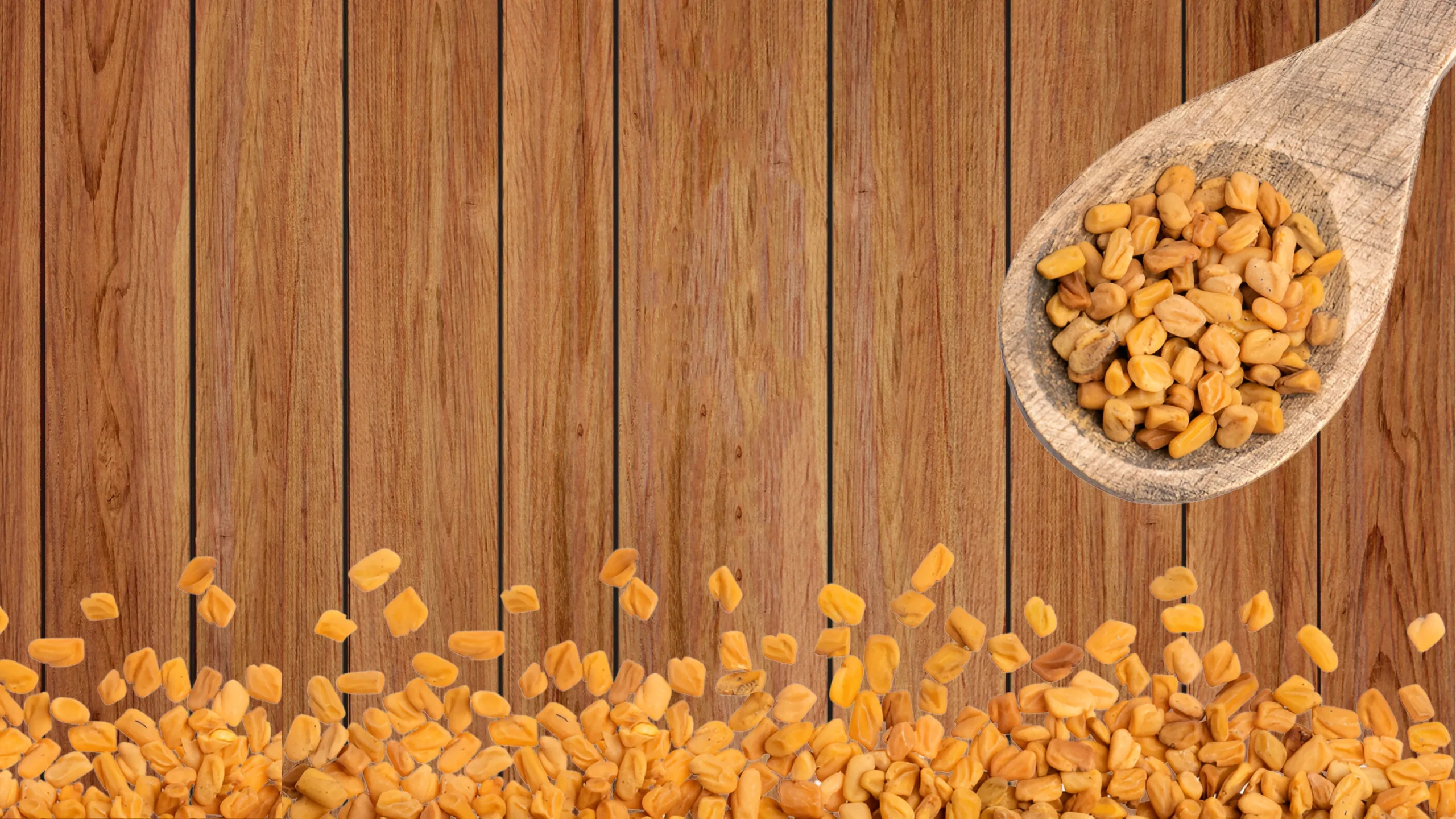
Fenugreek (Trigonella foenum-graecum) is an annual plant that grows up to 60 cm tall. It produces small, yellowish-white flowers and oblong, brown seeds that have a distinct bitter taste and strong aroma. The leaves, seeds, and sprouts of fenugreek are used in both culinary and medicinal applications.
Scientific Classification
- Kingdom: Plantae
- Phylum: Angiosperms
- Class: Eudicots
- Order: Fabales
- Family: Fabaceae
- Genus: Trigonella
- Species: Trigonella foenum-graecum
Common Names
- English: Fenugreek
- Sanskrit: Methika
- Hindi: Methi
- Tamil: Vendhayam
- Telugu: Mentulu
- Bengali: Methi
- Marathi: Methi
Traditional and Medicinal Uses
- Blood Sugar Control - Contains galactomannan and 4-hydroxyisoleucine, which help regulate blood glucose levels.
- Digestive Health - Acts as a natural fiber source, aiding digestion and relieving constipation.
- Lactation Support - Traditionally used as a galactagogue to enhance breast milk production in nursing mothers.
- Anti-Inflammatory & Antioxidant Benefits - Rich in flavonoids and alkaloids, providing anti-inflammatory and antioxidant effects.
Cholesterol Management - Helps lower bad cholesterol (LDL) while maintaining heart health.
Phytochemical Constituents
- Alkaloids: Trigonelline, Choline
- Saponins: Diosgenin, Yamogenin
- Flavonoids: Quercetin, Luteolin
- Steroidal Compounds: Fenugreekine, Coumarin
- Proteins & Fibers: Galactomannan
References
Ayurvedic Pharmacopoeia of India (API), Govt. of India.
Ayurvedic Pharmacopoeia of India (API), Govt. of India.
Sharangdhar Samhita, Chapter on Herbal Remedies.
Basch, E., Ulbricht, C., Kuo, G., Szapary, P., & Smith, M. (2003). "Therapeutic applications of fenugreek (Trigonella foenum-graecum): A review." Journal of Ethnopharmacology, 85(1), 1-9.
European Pharmacopoeia, 10th Edition, Council of Europe.
Acharya, S.N., Thomas, J.E., & Basu, S.K. (2008). "Fenugreek: An old medicinal herb with diverse applications." Molecular Nutrition & Food Research, 52(1), 37-52.
Chopra, R.N., Nayar, S.L., & Chopra, I.C. (1956). Glossary of Indian Medicinal Plants. CSIR, New Delhi.